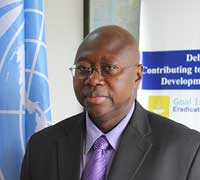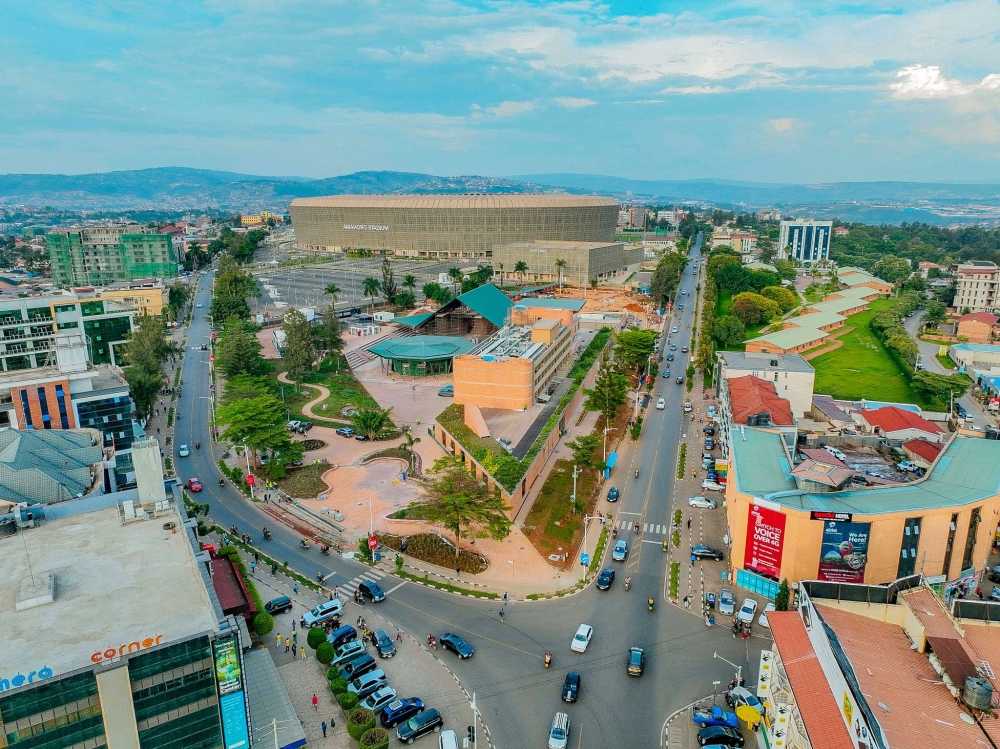Yesterday was Human Rights Day which marks the anniversary of the adoption by the UN General Assembly of the landmark Universal Declaration of Human Rights 68 years ago. This year’s observance also marks 20 years since another bold step was taken to make rights a reality for all: the adoption by the World Conference on Human Rights of the Vienna Declaration and Programme of Action. Member States adopted a far-reaching vision and created the Office of the High Commissioner for Human Rights (OHCHR).


Yesterday was Human Rights Day which marks the anniversary of the adoption by the UN General Assembly of the landmark Universal Declaration of Human Rights 68 years ago. This year’s observance also marks 20 years since another bold step was taken to make rights a reality for all: the adoption by the World Conference on Human Rights of the Vienna Declaration and Programme of Action. Member States adopted a far-reaching vision and created the Office of the High Commissioner for Human Rights (OHCHR).For the UN, promotion of human rights for all is not only a justice issue for all human beings, but it is also essential for conflict prevention. But it has not been an easy journey. In the words of UN Secretary-General Ban Ki-moon: "Promoting human rights is one of the core purposes of the United Nations, and the Organization has pursued this mission since its founding. Then, as now, the key to success is the political will of Member States. It is States, in the first instance, that are obliged to protect human rights and prevent violations at a national level, and to stand up when other States fail to live up to their commitments. This is not always easy, and over the past 20 years we have seen genocide and many other appalling and large-scale violations of international human rights and humanitarian law ".Nevertheless, the Universal Declaration on Human Rights has had a truly important and lasting impact on the world as a whole as a general philosophy and as guidance. To date, it has been translated into 416 national and local languages in the world, including Kinyarwanda, illustrating its global appeal. In Rwanda, the rights included in the Rwandan Constitution have been inspired to a large extent by this Declaration, even though it is firmly grounded on Rwandan core values. In particular, it is noteworthy, according to the constitution, that international human rights law provisions supersede national legislation.One of the main pillars of the UN’s work in Rwanda is based on access to justice and the protection of human rights. It is our wish to ensure that the population is well informed about all their rights.In Rwanda, the Government, with support from the United Nations and other development partners, has further integrated these rights and principles into national laws and policies. The process of decentralisation in Rwanda is an outstanding example on how to build a society premised on the participation of all, and participation as we know is key to the attainment of human rights. Rwanda’s commitment to human right is also illustrated by the country’s willingness to implement the recommendations of the UN Human Rights Council under the Universal Periodic Review (UPR). Over the last few years, we at the United Nations in Rwanda have made significant contribution to promote human rights through support to the Government in the ratification of virtually all the important human rights conventions. The citizens of Rwanda were educated about their rights and preserved these rights through a continued dialogue between the justice sector, the districts levels and citizens. The country targeted and ratified all the eight key human rights instruments and most of their additional protocols. Most importantly, Rwanda has made tremendous progress in ensuring the basic rights of all of its citizens: the right to education, to good health, to human security, protection of the rights of children, gender equity etc.Under the new United Nations Development Plan (UNDAP), 2013 – 2018, for Rwanda, there is a new flagship programme called "Access to Justice, Human Rights and Peace Consolidation” under which the UN System in Rwanda commits itself to working even more closely with Rwandan authorities and other development partners to consolidate the gains already made in the protection and promotion of human rights.Finally, I would like to pay tribute to one of the great symbols of human rights of our time: Nelson Mandela, whose lifelong commitment to human dignity, equality, justice and compassion will forever remain an inspiration as we continue to build a world of all human rights for all. Although he has passed, his spirit will remain an inspiration for generations to come. The writer is the UNDP Resident Coordinator




